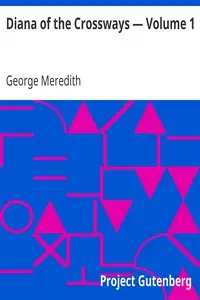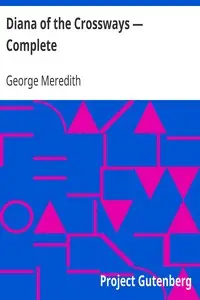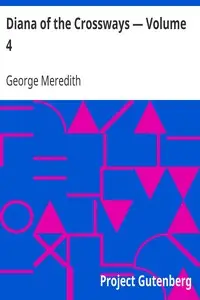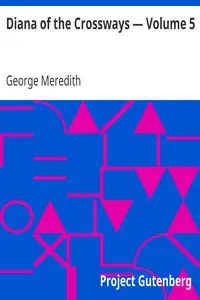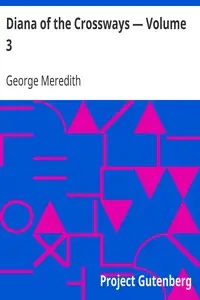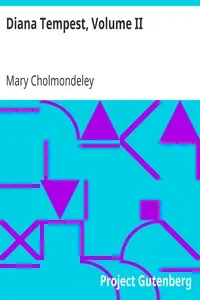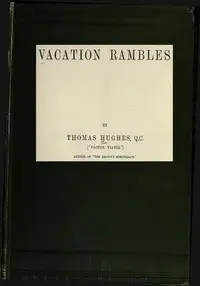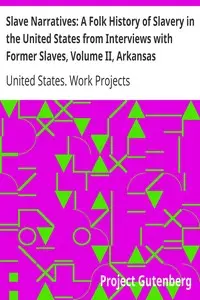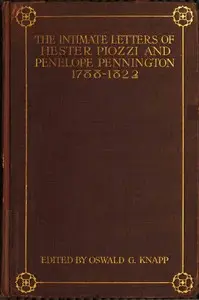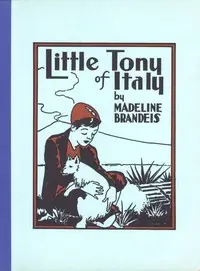"Diana of the Crossways — Volume 2" by George Meredith is a story set in the 1800s of a woman named Diana whose difficult marriage to Mr. Warwick puts her under the judgmental eye of the society around her as she struggles to stand her ground. When Redworth returns from America, Diana welcomes him, and they discuss the challenges that Diana is facing in her marriage and the pressures she feels from everyone around her. The friendship between Diana and Redworth is obvious, but so is the strain caused by Diana's dangerous situation in society. Although people are saying bad things about her, Redworth supports her strength and determination. This opening scene starts a study into who Diana is, her relationships, and the problems caused by society's rules. This study promises a trip full of feelings and commentary on society.
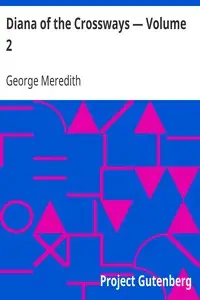
Diana of the Crossways — Volume 2
By George Meredith
A woman's tangled marriage and social pressures push her to the edge, but an ally from overseas sees her resilience amidst the storm.
Summary
About the AuthorGeorge Meredith was an English novelist and poet of the Victorian era. At first, his focus was poetry, influenced by John Keats among others, but Meredith gradually established a reputation as a novelist. The Ordeal of Richard Feverel (1859) briefly scandalised Victorian literary circles. Of his later novels, the most enduring is The Egoist (1879), though in his lifetime his greatest success was Diana of the Crossways (1885). His novels were innovative in their attention to characters' psychology, and also portrayed social change. His style, in both poetry and prose, was noted for its syntactic complexity; Oscar Wilde likened it to "chaos illumined by brilliant flashes of lightning". Meredith was an encourager of other novelists, as well as an influence on them; among those to benefit were Robert Louis Stevenson and George Gissing. Meredith was nominated for the Nobel Prize in Literature seven times.
George Meredith was an English novelist and poet of the Victorian era. At first, his focus was poetry, influenced by John Keats among others, but Meredith gradually established a reputation as a novelist. The Ordeal of Richard Feverel (1859) briefly scandalised Victorian literary circles. Of his later novels, the most enduring is The Egoist (1879), though in his lifetime his greatest success was Diana of the Crossways (1885). His novels were innovative in their attention to characters' psychology, and also portrayed social change. His style, in both poetry and prose, was noted for its syntactic complexity; Oscar Wilde likened it to "chaos illumined by brilliant flashes of lightning". Meredith was an encourager of other novelists, as well as an influence on them; among those to benefit were Robert Louis Stevenson and George Gissing. Meredith was nominated for the Nobel Prize in Literature seven times.

